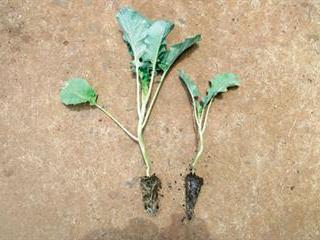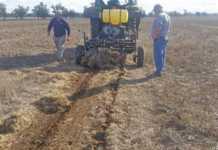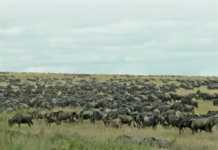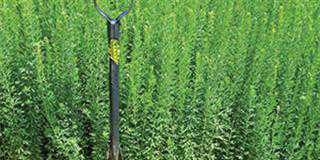
Whenever I’ve encountered a situation where transplants have failed to perform, it invariably involved seedlings which were hardened by withholding nitrogen, thereby reducing the stimulus needed by the plant to produce roots. Such seedlings are individual ‘units’ with all leaves and roots intact, exactly as they were in the nursery, where they weren’t allowed to continue growing.
Transferred from the nursery to the land without any adjustment, they still suffer from these limitations and don’t grow as expected. Strangely enough, the same seedling from soil-grown plants which is pulled out, leaving a damaged root system, will perform much better. This is because the damage forces the plants to start some root growth, which, of course, will be into fertile soil.
Poor performance can also be due to negligence on the part of the seedling grower. They’ve followed the correct procedure and produced a ‘hard’ plant where required. But they haven’t provided the necessary stimulus at pulling or informed the farmer of the necessary procedure.
By ‘necessary stimulus’ I mean the seedling grower should provide a good dose of nitrogen a few days before pulling. This will avoid ‘performance mishaps’ later. And the cost is low – about 20c per 1 000 seedlings to provide this stimulus.
Far superior
The farmer, meanwhile, can irrigate the seedlings with LAN at a rate of one handful for every 2 000 seedlings. Place this in a 8l watering can and either irrigate the seedlings in the seedling trays or when pulled and placed into their containers. This will give your seedlings a ‘speedy start’ and is far superior to products sold especially for this purpose. These products contain a lot of other elements which do a lot more to boost their price than stimulate the plant.
After all, if these extra elements are necessary to promote growth, they would have been used by the seedling grower to get the plant to grow well. If these elements are required for good growth in the land, they’ll have to be applied during fertilisation in any case. All that is needed is nitrogen to get the plant growing and enable it to make use of the soil’s fertility.
The age of the plant is less important than is generally assumed. Once a plant has reached the required size, it stays in limbo during the various hardening processes. It can remain in this state for weeks or even months with very little ill effect.
I’ve held over plants for two months beyond the transplant stage, with good yields no different to young transplants planted alongside. The difference is in the number of leaves formed. You’ll be OK if the plants are held over with the same number of leaves as when it was ready two months earlier.
Problems
However, when plants are allowed to continue growing and advance in their physical development in the seed trays, you’ll have problems. I’ve also seen slow-growing, under-nourished plants develop a lot more leaves than is good for the plant’s height at the time.
This too is not good, especially with early maturing varieties and certain crops. Cauliflower and broccoli can fall into this category. Even though yield may not be reduced, seedlings which become too large in the seed trays will be uneven during early development. Such seedlings require a lot more attention at transplanting to get them started and are much more vulnerable when planting in a hot period.
Leeway
In short, both the seedling grower and the farmer are responsible for ensuring the seedlings get off to the best start. However, seedling growers should be given some leeway when the plants are not perfect, as climate has a profound effect here. Getting the best from such seedlings requires input from both farmer and seedling grower. Inexperienced farmers should get advice on the best treatment for these from the seedling growers. Better this than playing the ‘blame game’.
Contact Bill Kerr on 016 366 0616, or email [email protected]. Please state ‘Vegetable production’ in the subject line of your email.













